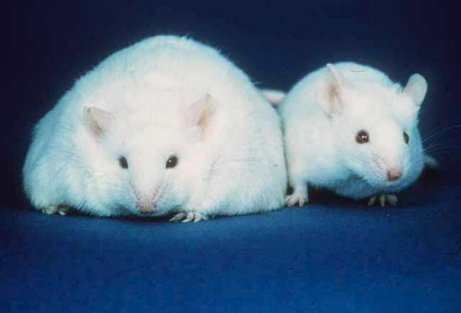The following is the introduction to the chapter "The Science of Fat" in the book Fat Kids: Truth and Consequences. Why we become fat and how we lose fat is of primary interest in our culture and our homes. What we don't know may surprise you. It is far more complex than even scientists currently know. This is just the beginning of an extensive interview with Dr. Emily J. Dhurandhar, a scientist and laboratory researcher of "obesity." A great deal more information is in the book and is still to be learned.
***
Dr. Emily J. Dhurandhar has a Ph.D. in human nutrition and is currently an assistant professor in the Department of Health Behavior at University of Alabama Birmingham as well as chair of The Obesity Society Advocacy Committee. Dr. Dhurandhar is interested in both obesity research and advocacy. With her research, she aims to understand the regulation of energy balance and the biological and environmental factors that affect it in free-living individuals, with the objective of creating novel interventions for maintaining weight and for weight loss. Her advocacy efforts are focused on the impact of weight bias on both treatment and research in obesity.
Dr. Dhurandhar: I became interested in the topic of obesity when I took a nutrition class in college. During the class they talked about fat and fat consumption, particularly saturated fat, how it relates to cardiovascular disease and may be implicated in weight gain. We learned those basic principles, and I started to think about my mother and my father. It didn't seem like it could really be that simple.
My mother has struggled with weight all her life, she is an avid dieter, she's tried everything in the book. I got my undergraduate degree in nutrition, so I personally tried to help her several times with her weight loss. Then she became diabetic, which really amplified her weight gain due to the medications she's taking. Though she exercises quite often and tries to stay healthy, she still is very overweight. So I see her story as caloric restriction, dieting, and exercising. And then I see my father, who has always been as thin as a rail his whole life, and he has always enjoyed his food and has never had to make any attempt to control his weight. So I just couldn't accept the story I was getting in my nutrition class, that it's that simple.
When I went into graduate school I decided to study nutrition with a focus on metabolism -- how our body utilizes nutrients, what factors regulate that, and how our body decides how much energy to expend. For example, whether or not some people are more efficient when they exercise, or if someone overeats, might that person be better at burning it off later than someone else who overeats. These kind of inter-individual differences were things that interested me.
During my dissertation work, my Ph.D., I studied a virus called Ad-36 -- it's an adenovirus, basically a common cold virus. It's actually not that well characterized because its symptoms are so benign, not severe, and therefore it's not well studied. However, if you infect animals with this virus, rodents and monkeys, it causes obesity. In humans you can tell if someone has had the virus in the past by looking for antibodies to the virus, and when we conduct that assay, the virus is pretty consistently associated with increased body weight and body fat mass. We have tried to look at this in detail, how is an infection able to do this? What we found is that in fat tissue everyone has something called preadipocytes, or pre-fat-cells, and if you put them in a petri dish and infect them with the virus, those pre-fat-cells will mature spontaneously into fat cells. So the virus seems to basically reprogram those cells to become bigger and gain fat. That is one possible way that the virus works and causes fat gain.
From this, I moved on to my postdoctoral work and have researched the kinds of exogenous factors that may cause obesity -- such as infections, certain organo-pollutants, chemicals that act a lot like steroid hormones, and other factors of our modern-day lifestyle. For example, we all know that we're shifting toward a very sedentary lifestyle. We now do a lot of cognitive work, meaning we use our brains instead of our bodies. Studies show if you expend a lot of your brain resources in doing cognitive work, then afterward you will consume more energy (calories) than you really need to replace those calories you just expended. So it's as if we are not well programmed to regulate our energy intake in this modern work atmosphere of high cognitive demand. So that's another factor we don't typically think about, but it may really impact the way our body regulates food intake and our energy expenditure.
Those are just a few examples. I guess you could broadly say I am interested in trying to determine the kinds of alternative factors from our environment, our modern-day environment, that may perturb our energy balance, and might result in weight gain, or make weight loss very difficult.
Besides those exogenous factors, all those modern-day lifestyle factors, there are also internal things that we cannot control. For example, research suggests that excess weight may originate all the way back in pregnancy, so as you are developing in utero, there are factors from your mother that can actually transfer to you that make you more prone to weight gain as a child. So, even before you are born, there are things that can impact your body weight. And that's not an issue of willpower or personal choice.
We are making progress, but there is still a great deal we don't know about how body weight is regulated and why some people are so prone to gaining weight in our modern environment and some people are not.
Edited excerpt from the book "Fat Kids: Truth and Consequences" by Rebecca Jane Weinstein. See more at FatKidsTheBook.com.

